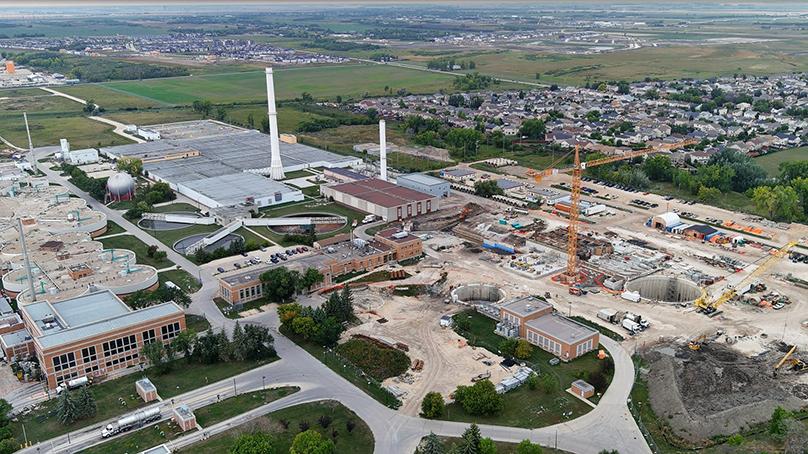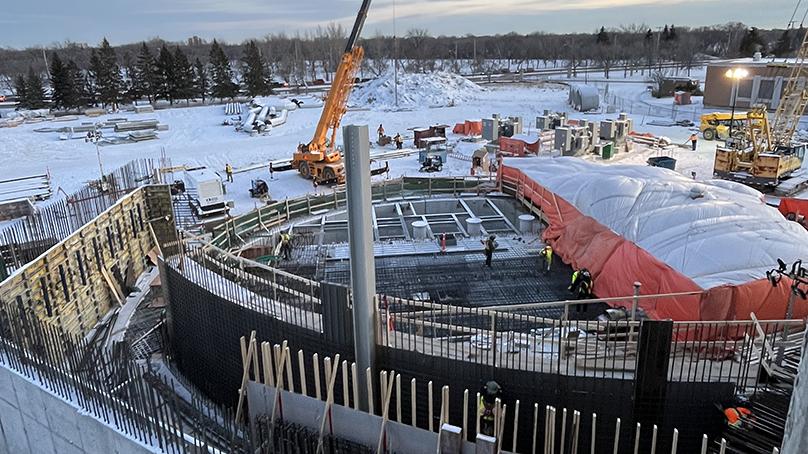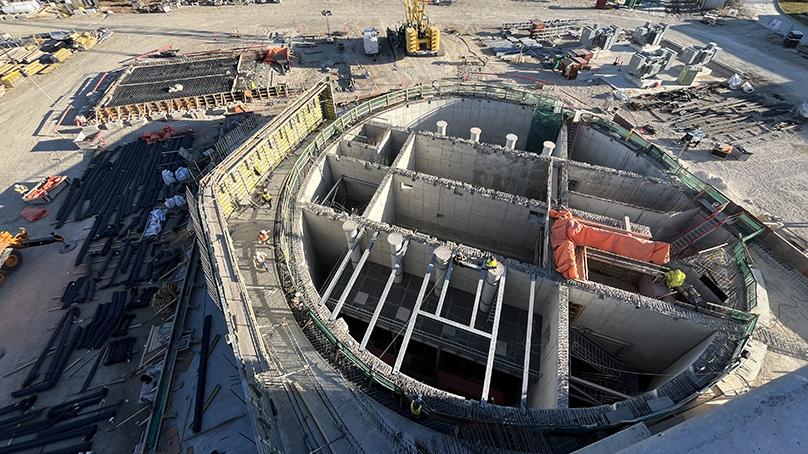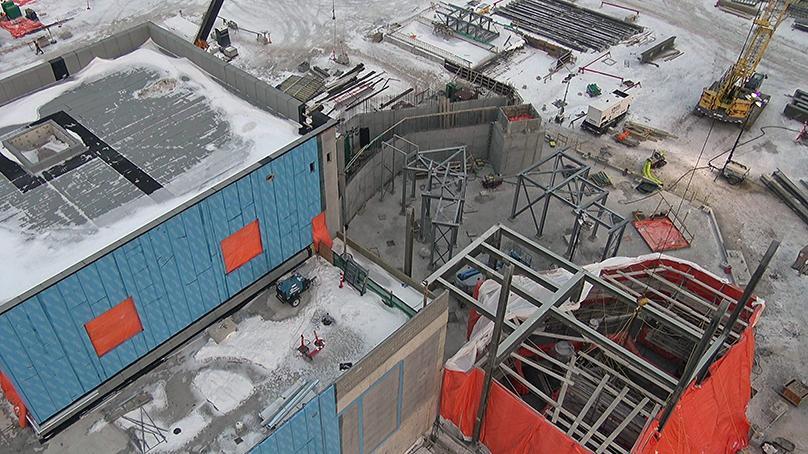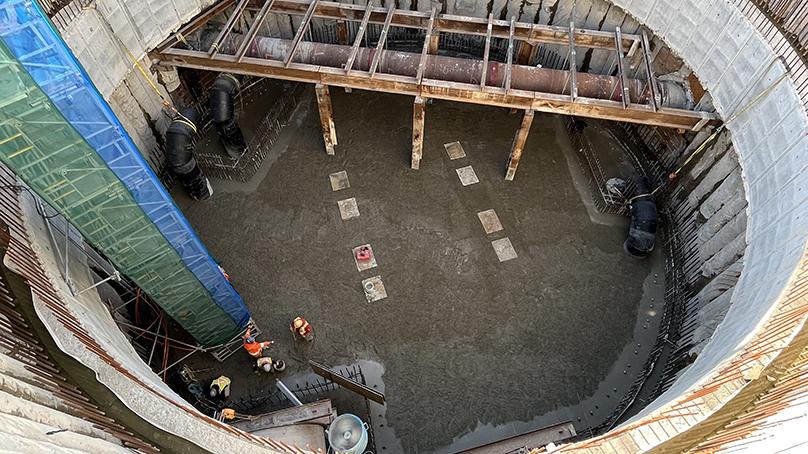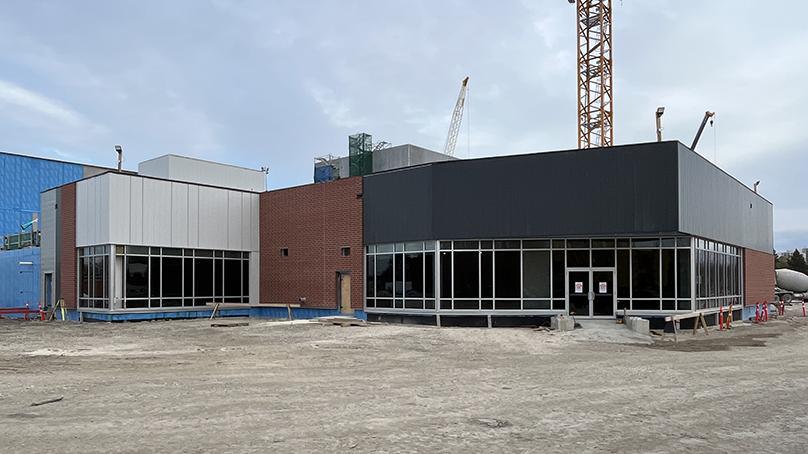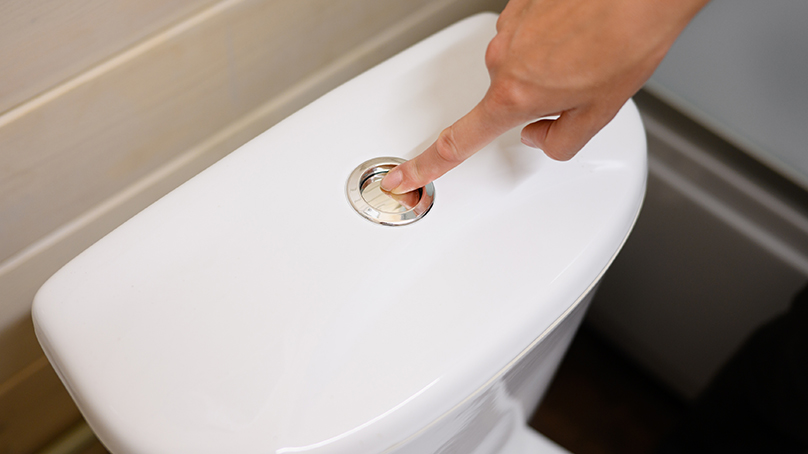
Usually people don’t think too much about going to the washroom. You flush, wash your hands, and continue on with your day. But what happens to what you flush is a big concern for us right now.
Our North End Sewage Treatment Plant (NEWPCC) is 88 years old and almost at capacity. It’s where 70 percent of our liquid wastewater is treated and 100 percent of the solids. It also needs upgrades to meet the requirements of its Environmental Act Licence.
That’s why we’re in the middle of the largest and most complex capital project in Winnipeg’s history. Over $3 billion dollars of upgrades are underway at the plant. It’s a price tag we can’t cover alone.
Finding funding
We currently have funding agreements in place with the provincial and federal governments to cover portions of this project. However, they are not enough to cover the entire project at this time.
Increasing rates
To help fund the project, Council approved an increase to the 2025 sewer rates. A family of four should expect their quarterly water and sewer (utility) bill to rise by $56.01 in 2025. The Water and Waste Department had also proposed sewer rates in 2026 and 2027. Council did not approve those.
“As costs all around us continue to rise, we know this increase will be difficult for everyone,” said Tim Shanks, Director of the Water and Waste Department.
That’s why we continue to look for additional funding sources and opportunities to manage cost lower the financial burden on our current residents and ratepayers.
The revenue from the rate increase will ensure this sewage treatment plant will serve our city for decades to come.
Needed work
NEWPCC, off Main Street near Chief Peguis Trail, is our oldest and largest sewage treatment plant.
There are three major projects underway at the site.
- Power Supply and Headworks Facilities
- A new power substation was built to meet the additional power demand of the plant. New wastewater pumps are being installed. Screening and grit removal from sewage will be improved.
- Biosolids Facilities
- This will treat our solid wastewater stream and turn it into biosolids.
- Nutrient Removal Facilities
- This will remove nitrogen and phosphorus from our wastewater.
While we’re reusing a few parts of the existing plant, when the work is done, we will essentially have a new sewage treatment plant.
Ultimately, the upgrades will protect our waterways by reducing the amount of nutrients released into our rivers and lakes.
How rates are determined
How much you pay on your quarterly bill depends on how much water you use. This is all measured by your water meter. That’s why it is important submit accurate water meter readings.
The water charge covers the cost of bringing water to your home. This includes the cost of operating and maintaining the aqueduct, drinking water treatment plant, reservoirs, pumping stations, and distribution system.
The sewer charge covers the cost of collecting, transporting, and treating sewage.
There is also a basic charge to cover the cost of providing the metered service.
Rates are set by Council.
New Waste Management Fee
Another change for your quarterly bill is a new Waste Management Fee. This replaces the previous Waste Diversion Fee.
Approved by Council, the new fee takes effect April 1, 2025. It would be applied to residential and multi-unit properties, as well as small commercial properties that requested City cart collection services up to 600L of garbage and recycling.
For residential and small commercial properties, the estimated quarterly bill is $63.50 effective April 1, 2025, $66 effective January 1, 2026, and $68.50 effective January 1, 2027.
For multi-unit properties, the estimated quarterly bill is $31.75 per dwelling unit effective April 1, 2025, $33.50 per dwelling unit effective January 1, 2026, and $35.75 per dwelling unit effective January 1, 2027.
Why now
As part of the 2024 budget process, funding for garbage collection was changed, and Council directed us to develop a new, self-supporting Solid Waste Utility model.
Before 2024, garbage collection from your curb was covered by property taxes. Since that’s no longer the case, the Solid Waste Utility is expecting a deficit of over $28 million this year.
The new fee should eliminate the deficit by 2028, and provide needed financial stability to solid waste services.
What’s included
The new fee funds garbage, recycling, and yard waste collection. It goes towards buying green carts as well.
It also helps fund a variety of services, including:
- 4R Winnipeg Depots and community recycling depots
- Bulky waste sweeps for arson prevention
- Collection for registered charities that meet certain conditions, as well as City-owned community centres and arenas
- Neighbourhood cleanup tipping fees
- Dead animal collection
- Costs to close landfill cells and maintain the closed sites in perpetuity
Under the new fee, the existing fee for replacing lost or damaged carts will be eliminated.
The Waste Diversion Fee received Council approval on March 27, 2025.
Originally posted on March 4, 2025

